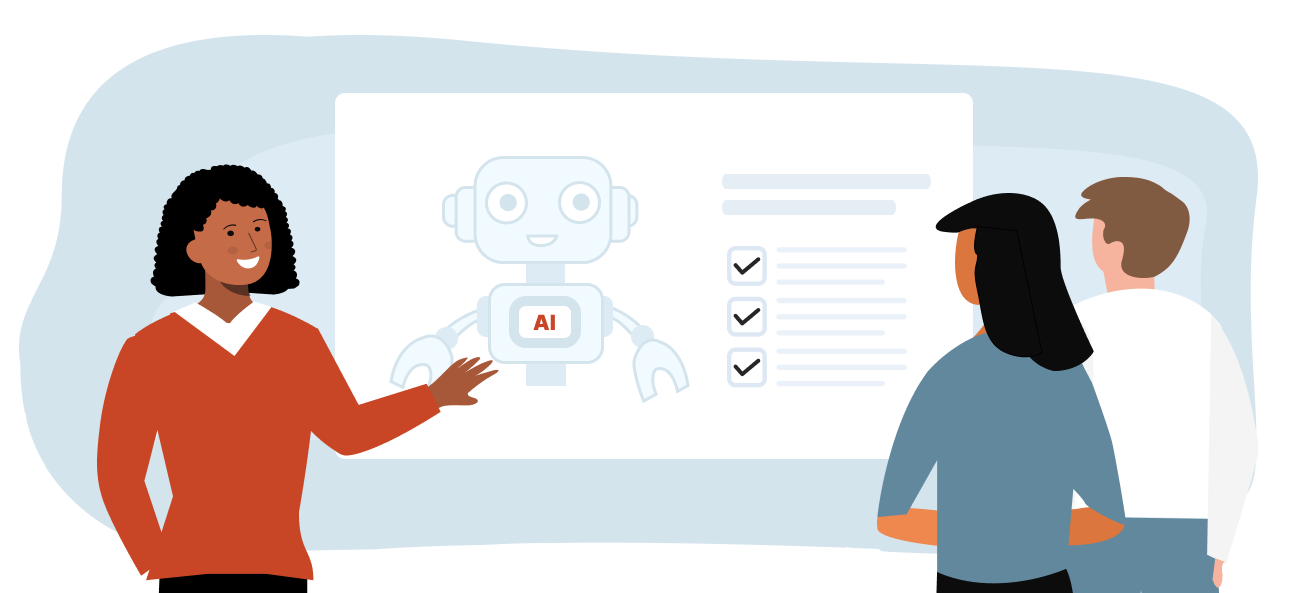Adaptive Leadership is Needed for the AI Shockwave: Why Emotional Intelligence, Curiosity, and a Fail-Fast Approach Are Non-Negotiable
One thing is certain, change. But change doesn’t arrive in neat, manageable doses. It comes in waves, sometimes crashing over organizations with the force of a tsunami. The COVID-19 pandemic was one such disruption. The next? Artificial Intelligence.
While AI offers unprecedented opportunities, it also brings uncertainty, disruption, and fear. For leaders, this is not just a technical challenge, it is an adaptive challenge. To help our organizations survive and thrive, we need more than processes and policies. We need adaptive leadership anchored in emotional intelligence, curiosity, and a fail-fast approach (test-fail-revise-test) to defining strategy.
What Is Adaptive Leadership?
First defined by Ronald Heifetz and Marty Linsky in The Practice of Adaptive Leadership (2009), adaptive leadership is the ability to anticipate change and create a culture where people can withstand disruption, learn rapidly, and discover new solutions when none exist.
Adaptive challenges differ from routine challenges because there are no experts with ready-made answers. There is no road map. AI adoption, for example, doesn’t come with a step-by-step playbook. Leaders must guide teams through unknowns, help them experiment, and build resilience to blaze a successful trail.
Why AI Requires a New Kind of Leadership
Artificial Intelligence is not just another small-step technology, it is potentially a transformational force. It will reshape job roles and workflows. Some entire industries may virtually cease to exist. This has happened with many transformational changes throughout history – the storm hits fast and when the dust settles, things are very different.
Think of other transformational changes in the past: the industrial revolution with the assembly line replacing individual craftsmen, the automobile replacing horses, the invention of the transistor and all that changed as a result of its use – the personal computer, space exploration, the internet…
The list goes on and on – and we will continue to create transformational change at a faster and faster pace.
For employees, a transformational change such as AI can trigger:
Uncertainty: Will my role be automated?
Resistance: Why should I change when current methods still work?
Overwhelm: How do I learn a whole new set of skills to remain competitive as a worker?
This is why emotional intelligence (EQ) is essential. Leaders must recognize these emotions, create psychological safety, and encourage curiosity rather than fear. Adaptive leaders don’t simply announce AI strategies; they coach their teams through the transition.
How Leaders Can Help Teams Adapt to AI
1. Build Organizational Trust for AI Adoption
AI preparedness begins with trust. If employees don’t trust leadership, they won’t embrace AI—they’ll resist it. Transparency, honesty about what AI means for jobs, and involving employees in the learning process builds resilience.
Building trust requires leaders who are empathetic listeners, great communicators, and collaborators.
Trust on such disruptive topics as AI’s impact must be earned before the crisis hits. Leaders must be very deliberate in their consistency, their listening, and their follow-up over months to establish organizational trust to the level needed when transformational changes occur.
2. Encourage AI preparedness through lifelong learning and curiosity
Curiosity is the antidote to fear. Leaders must promote continuous learning as a core cultural value. When employees are curious, they see AI not as a threat, but as a tool to amplify their skills and improve their results.
Practical steps:
Provide training and development pathways for employees to learn AI basics.
Celebrate curiosity-driven initiatives and small wins.
Reward experimentation and questions as much as outcomes.
3. Promote a “Fail-Fast” Risk-Taking Environment
When no experts exist, experimentation becomes the only guide. AI-adaptive leaders foster a fail-fast, learn-faster culture where small experiments with AI are encouraged and discussed openly.
This mindset reduces the fear of failure and accelerates organizational learning. AI won’t be mastered overnight, but teams that test, pivot, and improve will gain a significant competitive advantage.
Experimenting in small steps also reduces the risk of major consequences from experimentation.
The Formula for Adaptive Leadership in an AI World
If adaptive leadership had a recipe, it might look like this:
Combine 3 parts servant leadership with a strong dose of empowerment.
Add diversity of thought, continuous learning, and empathetic listening.
Season generously with emotional intelligence and curiosity.
Bake in a trusted environment and serve with experimentation and resilience.
Conclusion: The Culture You Build Now Will Define the Future
The next adaptive change is nearly here. AI will transform our workplace rapidly - just as previous transformational changes and technologies did. Leaders who lean on positional authority will struggle. Workplaces with a low-trust, change averse environment with a low-empowerment culture – will fail. Leaders who foster trust, curiosity, emotional intelligence, and adaptability will thrive.
The question is not whether AI will change your workplace. The question is whether your team will be ready and resilient enough to adapt. The time to prepare is now while you still can!
Ready to become a better people leader?
Take a free and quick leadership assessment to measure your demonstrated leadership skills. Uncover insights for you to lead your team to improved performance, address challenges, and ultimately grow in your career!
